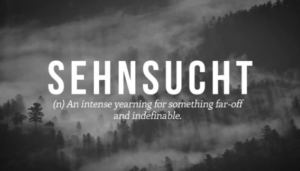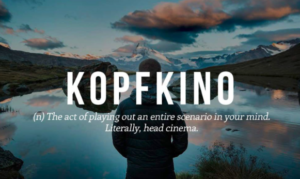I’ve been tracking a bunch of lovely, evocative words that have no English equivalent for a while.
There’s a joy to learning these “loanwords”. They remind us that there are still things out there that remain undiscovered, unencapsulated. This naivety to the human experience comes as a nice relief. I think also we enjoy the sport of reading a foreign word and its meaning and being able to “get it” immediately, in spite of there being no English basis for doing so. How cool! How perfect! How connected is this world that we can get something with no linguistic reference point!
Also, there’s this:
Most loanwords attempt to poignantly capture “happiness”
And the way in which they do is just gorgeous to reflect upon. They take us into the joy of what the word is trying to convey.
Come with me on this…
Northern European loanwords describe an existential coziness. Of course. Against a backdrop of harsh temperatures, happiness is candles on window ledges and cosy dinner parties with friends in soft cashmere. The words—koselig (Norwegian), mysa (Swedish), hygge (Danish), and gezellig (Dutch) all capture this vibe.
In Southern Europe, by contrast, there are loan words about being outside, languidly connecting with people on the streets. For example, one of my favourites, the French flâner.
In a lot of languages, there are words that try to capture a very subtle moment between two people: queesting, in Dutch is“to allow a lover access to one’s bed for chitchat” (I LOVE THIS), and the Aboriginal word dadirri in is “a deep, spiritual act of reflective and respectful listening”.
And in Asia there’s words that sum up ways of behaving amidst chaos. Such as sukshma (“the art of being innocent faint and effortless) and wabi sabi.
The Germans have a bunch of delightful words, too. Make of these what you will.
Kuddelmuddel means “an unstructured mess”, kummerspeck means weight gained via emotional over-eating. Literally, grief bacon!
Any words I’ve missed you particularly love? Feel free to share below.



